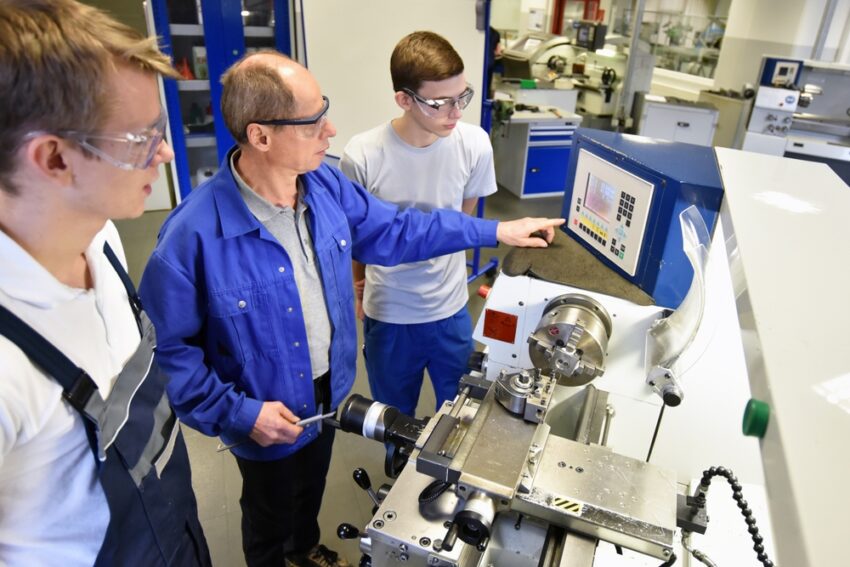Europe’s dream to wean off US tech gets reality check
BRUSSELS — The EU is set to deliver a sobering message to a growing movement in Europe calling for a detox from U.S. Big Tech.
The message? That ain’t happening anytime soon.
As the U.S. continues to up the ante in questioning transatlantic ties, calls are growing in Europe to reduce the continent’s reliance on U.S. technology in critical areas such as cloud services, artificial intelligence and microchips, and to opt for European alternatives instead.
But the European Commission is preparing on Thursday to acknowledge publicly what many have said in private: Europe is nowhere near being able to wean itself off U.S. Big Tech.
In a new International Digital Strategy the EU will instead promote collaboration with the U.S., according to a draft seen by POLITICO, as well as with other tech players including China, Japan, India and South Korea. “Decoupling is unrealistic and cooperation will remain significant across the technological value chain,” the draft reads.
It’s a reality check after a year that has seen calls for a technologically sovereign Europe gain significant traction. In December the Commission appointed Finland’s Henna Virkkunen as the first-ever commissioner in charge of tech sovereignty. After few months in office, European Parliament lawmakers embarked on an effort to draft a blueprint for tech sovereignty.
Even more consequential has been the rapid rise of the so-called Eurostack movement, which advocates building out a European tech infrastructure and has brought together effective voices including competition economist Cristina Caffarra and Kai Zenner, an assistant to key European lawmaker Axel Voss.
There’s wide agreement on the problem: U.S. cloud giants capture over two-thirds of the European market, the U.S. outpaces the EU in nurturing companies for artificial intelligence, and Europe’s stake in the global microchips market has crumbled to around 10 percent. Thursday’s strategy will acknowledge the U.S.’s “superior ability to innovate” and “Europe’s failure to capitalise on the digital revolution.”
What’s missing are viable solutions to the complex problem of unwinding deep-rooted dependencies.
The EU has embarked on a journey to catch up on AI infrastructure, earmarking billions of euros for AI-optimized supercomputers in a bid to counter U.S. plans by OpenAI and others. Yet even tech-friendly lawmakers have expressed doubts this will succeed.
Europe should “sober up” in its quest for tech sovereignty and accept that “certain trains have left the station,” conservative Bulgarian lawmaker Eva Maydell told POLITICO’s AI and Tech Summit last month.
“We need to have a very clear outline plan which, first and foremost, assesses where our strengths are, where we have certain dependencies, and where we need to cooperate,” said Maydell.

Thursday’s strategy is expected to do just that, with a long list of opportunities to collaborate in areas such as chips, quantum technology, AI and secure connectivity.
“[The strategy] is more pragmatic than being politically absolutist … [and saying] OK, we’re going to do everything in Europe,” said Dan Nechita, former head of Cabinet of European lawmaker Dragoș Tudorache and now EU director for the Transatlantic Policy Network.
He likened it to growing tomatoes or potatoes at home: “It doesn’t mean that I could not, but sometimes it doesn’t make sense.”
As even some of Europe’s most Atlanticist, free-market corners grow wary of their addiction to the U.S., a few countries and cities are embarking on their own political efforts to break free.
National lawmakers in The Hague have been building pressure on the Dutch government to wean off its dependence on American providers — only for their efforts to be derailed by Geert Wilders’ decision to quit the government coalition.
The Danish cities of Copenhagen and Aarhus decided on Tuesday to look for alternatives to allow them to drop Microsoft productivity products and cloud services, as Denmark prepares to take over a leading role in Brussels running meetings of EU ministers from July 1.
But Thursday’s strategy acknowledges skepticism as to whether the EU actually has alternatives for these political front-runners to fall back on, or whether it makes sense to splash billions of euros on getting them off the ground.
The EU’s tech chief Virkkunen has underscored the Commission’s desire to keep the bloc open to the world in her first months in office, by taking trips to India, Japan and the U.S. and consistently emphasizing the importance of dialogue and close collaboration.
She has the backing of some of the most influential tech lobby groups in town — even on the need to continue to work with the U.S.
“We need a transatlantic tech alliance to jointly develop and protect the technologies that underpin our shared security and economic prosperity such as AI, quantum and semiconductors,” Cecilia Bonefeld-Dahl, director general of DigitalEurope, told POLITICO ahead of Thursday’s unveiling.




















:quality(85):upscale()/2025/10/09/670/n/1922283/00b944c868e7cf4f7b79b3.95741067_.jpg)
:quality(85):upscale()/2025/10/15/765/n/1922398/29c37a6e68efd84bb02f35.49541188_.jpg)
:quality(85):upscale()/2025/09/09/891/n/1922283/7222624268c08ccba1c9a3.01436482_.png)
:quality(85):upscale()/2023/10/03/668/n/1922283/1f15c8a9651c2d209e5eb5.32783075_.jpg)













:quality(85):upscale()/2025/07/10/708/n/1922398/8fe2782e686fe372b38bf8.29984296_.jpg)
:quality(85):upscale()/2025/01/08/844/n/1922398/cde2aeac677eceef03f2d1.00424146_.jpg)

